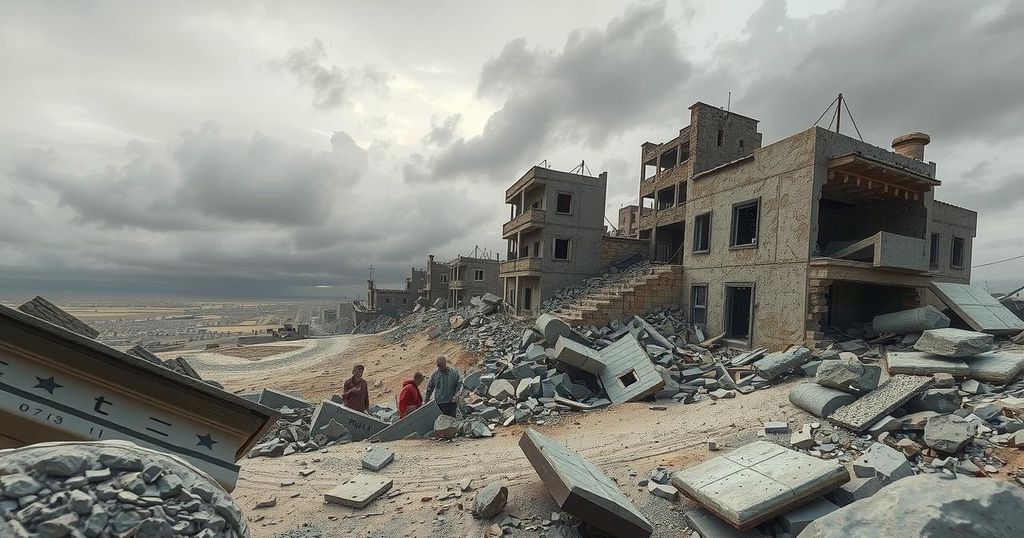Global news
AFRICA, AL - KHAIER, AL - KHAIR, ASIA, BENJAMIN NETANYAHU, CAIRO, CONFLICT, DEVELOPMENT AID, DONALD TRUMP, EGYPT, GAZA, HAMAS, ISRAEL, JORDAN, MANS, MANSOUR ABU AL - KHAIER, MIDDLE EAST CONFLICT, NET, NETANYAHU, NORTH AMERICA, PHILIPPINES, SA, TRUMP, UNITED STATES, US, WASHINGTON
Leila Ramsay
0 Comments
Gazans Reject Displacement Plan Amid Death and Destruction
- Mansour Al-Khaier symbolizes Palestinian rejection of displacement plans.
- Zionist entity’s Netanyahu discusses potential relocation of Gazans.
- Trump’s proposal to displace Palestinians faces sharp rebuke.
- Palestinians fear displacement amounts to ethnic cleansing.
- ICRC warns of Gaza’s healthcare system nearing collapse.
Facing Death and Destruction in Gaza’s Ongoing Strife
Gaza has become a haunting reminder of war’s harsh realities, particularly for individuals like Mansour Abu Al-Khaier. This 45-year-old Palestinian looks over the ravaged landscape and is met with a scene plagued by death, destruction, and ongoing starvation after nearly two relentless years of conflict between Hamas and Israeli forces. As millions are swept into turmoil, Al-Khaier emphatically rejects United States President Donald Trump’s plan aimed at displacing Gaza’s population, which currently stands at about 2.3 million. He questions the feasibility of such a plan with anger and despair, asking, “This is our land. Who would we leave it to, where would we go?” The implications of potential relocation haunt many as the ongoing destruction continues.
International Reaction to Trump’s Displacement Plan
At a recent White House event, Trump welcomed Israeli Prime Minister Benjamin Netanyahu to discuss this contentious proposal, which seeks to relocate many Palestinians to neighboring nations. Netanyahu articulated, “You know if people want to stay, they can stay. But if they want to leave, they should be able to leave.” The Israeli Prime Minister further indicated that collaboration with the U.S. was underway to find adjacent countries willing to accommodate Palestinians in search of a brighter future. However, the prospect of displacing Palestinians, raised after Trump’s inauguration, has not gained support from Egypt or Jordan, despite the US’s propositions to turn Gaza into the “Riviera of the Middle East.” This concept has generally been dismissed, as it echoes sentiments of ethnic cleansing from Palestinians and human rights advocates.
Health Crisis Emerges Amidst Chaos in Gaza
Then there’s Saed, a 27-year-old Gazan, who continues to carry the weight of his home despite the catastrophic violence that has left families displaced and in ruin. He voiced a personal conviction, stating, “We have the right to leave of our own free will and visit other countries, but we reject the plan of displacement as Palestinians.” Such sentiments reflect the collective memory of Palestinians who have long aspired to their own state within the confines of Gaza, the West Bank, and East Jerusalem amidst a complex geopolitical reality. Many believe the Israeli government has only intensified settlement activities, further stifling hopes for a sovereign nation. The so-called Nakba remains an ongoing trauma that continues to shape Palestinian identity after multi-generational struggles. In the wake of this turmoil, the International Committee of the Red Cross (ICRC) has warned of unprecedented challenges facing the healthcare system in Gaza, particularly linked to increasing casualties tied to aid distribution chaos, highlighting how dire the situation is becoming.
In summary, the situation in Gaza remains severely precarious, with many residents firmly rejecting the notion of displacement proposed by U.S. and Israeli leadership. The effects of war and humanitarian crisis loom larger as healthcare systems struggle under the weight of increasing casualties. The collective resilience of Gazans, voiced through their unwavering attachment to their homeland, continues to resonate even in the fiercest of battles, making any plans of overcrowding a community in this way deeply controversial and unwelcome.




Post Comment